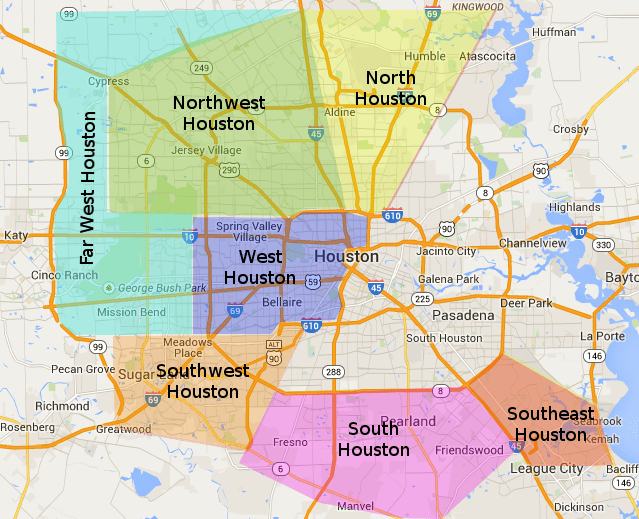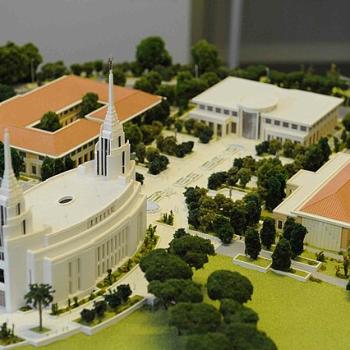
(Wikimedia Commons public domain image)
In the fourth chapter of John H. Walton and D. Brent Sandy, The Lost World of Scripture: Ancient Literary Culture and Biblical Authority (Downers Grove IL: IVP Academic, 2013), which is entitled “Proposition 4: the Bible Contains No New Revelation About the Workings and Understanding of the Material World,” the authors reiterate that proposition often enough that even the slowest of their readers will eventually get the point that, in their view, the Bible contains no new revelation about the workings and understanding of the material world:
In God’s revelation to Israel, he did not give them a more advanced understanding of the moon in accordance with its material nature. Instead he communicated in terms of what they knew. (49)
The authors offer a specific illustration, referring to some modern readers of the Hebrew Bible:
An example of this is when people read about the “waters above the sky” in Genesis 1 and therefore conclude that there must be waters above. They then devise a science to explain the waters above in modern terms rather than recognizing that this understanding (common in the ancient world) was accommodated by God as he sought to communicate through human instruments his own work in the world and his control of it. (52)
Every statement of the Bible that pertains to the understanding and regular operation of the material world was already known by the Israelites and widely believed in the ancient world. Everyone believed that there were waters above. Everyone believed that the earth was round (but disk, not sphere . . . ) (53-54)
We should not consider Genesis 1 (or any other reference) as mandating the scientific conclusion that there actually were waters above the earth. We have known for a long time that there are not, but that did not stop people from suggesting that something that we know of (e.g., clouds) were the waters above, or something that we might reconstruct from the past (some sort of vapor or ice canopy) constituted the waters above. These options violate biblical authority if those phenomena were not what the biblical communicator had in mind, nor what his audience understood when that language was used. Instead, we should recognize that the waters above represent an accommodation to Old World Science communicating in a context in which everyone believed that there was a body of water suspended above the earth by some sort of solid dome. (57)
Reading such things, I’m irresistibly reminded of Doctrine and Covenants 1:24: “Behold, I am God and have spoken it; these commandments are of me, and were given unto my servants in their weakness, after the manner of their language, that they might come to understanding.”
To begin with, virtually no one objects to the observation that the Bible is not a science textbook. This means that the Bible’s objective is not to give us a scientific understanding of the world. (50)
They [the writers of the Bible] understood a lot about cause and effect, but there was nothing natural about it. The only relevant causes were divine causes and human causes. This meant that the workings of the material world in naturalistic terms were of very little interest to them. (50)
I’m reminded here of the contrasting explanations given in Alma 44 by the Nephite commander Moroni (44:3-4) and by Zerahemnah (44:9) for Nephite success on the battlefield. Although it was Moroni himself who had supervised the production of Nephite armor and the fortification of Nephite cities, he offers a “divine cause,” while Zerahemnah counters with a naturalistic counterexplanation
Agreement on this point should lead to the inevitable next conclusion (though it often does not), that is, that there is no new scientific revelation in the Bible. By this we mean that no statements in the Bible offered the original audience new insight into how the material world regularly works or how the naturalistic cause-and-effect system operates. (51)
The Bible offers no new revelation of the works of the material world, even though it offers to the original audience a revised vision of their theology concerning God’s work in the world. (53)
[W]e can again affirm that there is no new scientific revelation. (53)
The Bible is not a science textbook (so God was not offering scientific truth for the ages), nor does it provide any new scientific information (but rather accommodates the thinking its audience had). . . . So the Bible’s objective is not science, and the Bible in fact offers no new scientific advances or explanation. . . . Scripture is not making those sorts of claims. This would include current ongoing material processes as well as material origins — conclusions drawn about the material world that can be investigated and either confirmed or denied by scientific study, Scientific investigation, for its part, cannot either affirm or deny theological beliefs such as God’s role in creation, the origin of sin, the spiritual nature of humans or the image of God in us. These are theological beliefs not in the purview of science. In the same way the naturalistic operations of the material world and the investigation of its mechanics are matters for science and are not determined by the biblical text. (54)
We propose that the Bible typically does not offer information about these aspects of the physical world that science could either prove or disprove. the Bible’s claims regarding the origins, mechanics or shape of the world are, by definition of the focus of its revelation, in the theological realm — that is, they pertain to the nature of God’s involvement and activity. (55)

The note below went out to members of the Friendswood Texas Stake about two weeks ago. Friendswood is in the greater Houston area, and is situated in the northwest corner of Galveston County:
Dear Sisters and Brothers,
All members of the Friendswood Stake are cordially invited to a special Stake Fireside on Saturday, September 9, 2023, at 6 PM at the Stake Center. The Fireside will feature Brother Daniel C. Peterson, a distinguished professor emeritus of Islamic Studies and Arabic at Brigham Young University. Brother Peterson’s talk will deal with six climactic days in August 1844, during which one of the most charged events in the history of the young church took place and how the hand of the Lord was manifested in power to make His will known as to whom would guide His church. The title of Brother Peterson’s talk is “6 Days in August: The Twelve’s Rise to Leadership.”
Dr. Peterson and his wife Deborah were the Producers of the acclaimed Latter-day Saint film “Witnesses” which tells the story of the witnesses of the Book of Mormon and to the follow up film, “Undaunted: Witnesses of the Book of Mormon.”
He is also the founder and president of the Interpreter Foundation, which provides resources and scholarship for Latter-day Saints seeking answers to questions about the Church and its doctrine.
This will be a great opportunity to invite friends, family, and others to learn more about the beliefs and history of the Church. Below is additional biographical information about Brother Peterson.
We hope to see you there!
Sincerely,
Presidents Peterson [no relation], Rasband, and Owens, The Friendswood Stake Presidency
If you’re in the greater Houston area that evening, please drop in! All are welcome.













